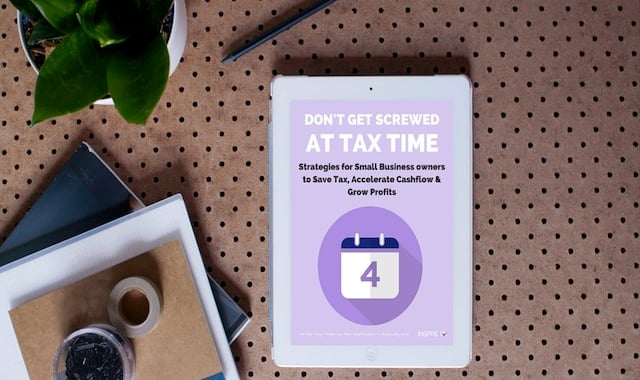Write Off Bad Debts
How does this strategy work?
Let’s say you are a plumber, and builders are your clients.
You send them invoices regularly for your work.
Sometimes they pay.
Sometimes they don’t.
There always seems to be a dispute.
Let’s say for a $1,000 invoice you send, the builder pays $800 but refuses to pay the last $200.
He claims your guy never showed up on that day (even though he did!)
So you chase up the $200. You ring, you sms, you email, you knock on doors, you send ‘the boys’ around.
Nothing. Zip. Zilch. Nada.
The $200 sits on your Debtors Ledger aka “Your list of people who owe you money!”.
The $200 becomes BAD…
No, the debt didn’t grow a beard, nor did it start wearing a black leather jacket and start smoking.
It’s BAD because it’s likely you’ll never get it back!
You’ll probably spend more than $200 just chasing the damn thing.
Same principle applies if the builder went bust.
It’s bad.
While $200 doesn’t sound like a lot, this scenario is pretty common in the Building Industry.
This scenario needs to happen just a few times over a couple of years and you’ve built up a WHOPPING $12,000 in Bad Debt.
So here’s how the numbers would crunch.
The example we’ll use is where your taxable income is $200,000.
Option 1 (Without Tax Planning): Pay in your own name
The tax rate in your own name would be at individual rates, of up to 47%.
So you’d be up for $67,547 Tax.
Ouch!
Option 2 (With Tax Planning): Write off $12,000 worth of bad debt.
Your taxable income would reduce to $188,000.
By writing off $12,000 of Bad Debt, you’d save $5,640 in tax, when compared to paying in your own name.
What do you need to implement this strategy?
- A Business.
- Bad Debt
- Evidence of your attempts to recover – emails, phone calls, death threat letters (complete with cut out magazine letters)
- Evidence of your decision to write the Bad Debt off – a meeting minute will do.
- A chat with an Inspire Chartered Accountant – www.calendly.com/inspireca.
- To take action prior to 30 June.
FAQ’s: Write Off Bad Debts.
What happens if I write off a Bad Debt and then it gets paid back?
While this situation should be rare if you’ve written off the bad debt, you’ll need to add it to your profit in the year that it was paid to you.
How do I avoid Bad Debt in the first place?
Change your business model, so you receive the cash before you carry out the work!
Have a read of the article we wrote on this called “How to get paid faster – step 2 of 5 ways to make your business work for YOU!”
Is there a limit on the Bad Debt that I can write off?
No.
If a debt is bad, it’s bad!
Let’s write off bad debts and move on.
When does a Bad Debt become Bad?
While it isn’t definitive, here’s some considerations:
- Must not have a chance of receiving the money
- Must have proof of following up and doing what you can to recover the amount, even though unsuccessfully
- You MUST have considered the debt Bad, before 30 June of the year you write it off
Bad Debt and Debtors are affecting my cashflow, what advice would you give?
This signals that something isn’t right in your business.
It could be your:
- Pricing strategy
- Quality of your product or service
- Clients you’re choosing to work with
- When you take payment for your services
But something is out of kilter.
NEXT STEPS:
- Book in a Quick 10 Min Chat here with an Inspire Chartered Accountant to talk about Tax Saving Strategies that will work for you.
- Attend our Cash Rich Business Workshop where we will spend 2 hours walking you through the exact step by step process to become a far more profitable business than you currently are. https://inspireca.com/events



